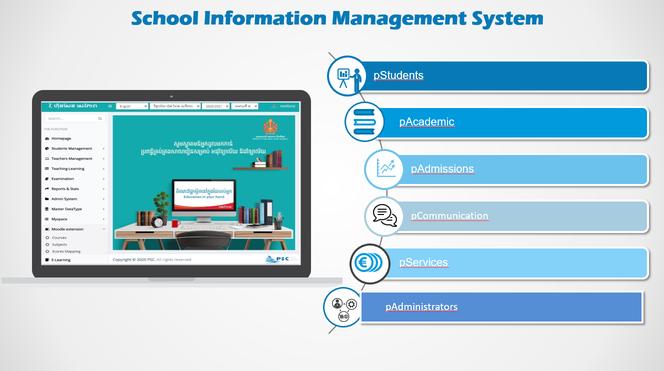The Covid-19 pandemic forced millions of children in the Kingdom away from their regular classes.
The education of nearly 3.8 million students was affected due to lockdowns imposed to curb the spread of the pandemic. Governments and school administrators across the globe jostled to find alternative methods to ensure learning continued without any interruption.
Innovative digital learning platforms emerged as the saviour – which made possible virtual learning that delivered teaching to homes.
The Ministry of Education, Youth and Sports (MoEYS) partnered with Metfone to develop the SIS Cambodia platform to offer free access to the internet to drive online learning, school information management systems and online video classes, as the nation battled with the pandemic.
The SIS Cambodia app has been upgraded to provide a one-stop solution for both teachers and students. It includes a school management system, an e-learning platform and an e-library with digital books.

The platform also offers teachers and students unlimited video conferencing time and a digital homework capability, as well as real-time communication for students, teachers and parents.
• The future of learning is digital
The integration of information technology into the education sector will be further accelerated and online education will eventually become an integral component of school education.
With Cambodia undergoing many developmental challenges, digitalising education will further strengthen the foundation for sustainable education.
With access to the right technology, there is evidence that online learning can be more effective in a number of ways.
Some research shows that, on average, students retain 25 to 60 per cent more knowledge when learning online compared to only eight to 10 per cent in a classroom.
This is mostly due to the students being able to learn faster online; e-learning requires 40 to 60 per cent less time to learn than in a traditional classroom setting because students can learn at their own pace, going back and rereading, skipping oraccelerating through concepts as needed.
• Why should schools consider digitalisation?
The education sector over time has observed that graphic integration of digital education has demonstrated higher engagement and increased motivation towards learning, especially among younger students, making them enjoy learning new things.
What has been made clear through the pandemic is the importance of digitally transforming education across all provinces, across facilities, and all parts of society.
If online learning technology can make an impact here, it is a responsibility for all of us to explore its full potential.




